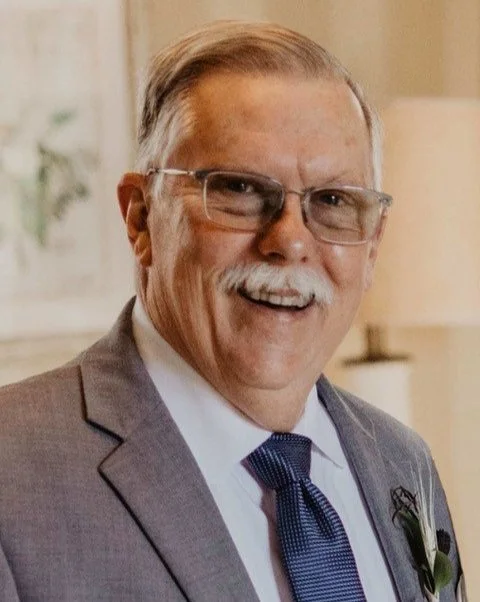A doctor’s conclusion for every Christian: compassion is our calling
By Jim Sloderbeck
Fifty years ago this spring, I was visiting Baltimore, Maryland for a campus tour and interview at Johns Hopkins University School of Medicine. Hopkins, then as now, was an awe-inspiring sight. There were corridors that stretched for more than a city block; patients were everywhere, in rooms and open wards; laboratories and lecture halls; portraits of the greats of medicine upon the walls. Entering the rotunda, beneath the famous dome of the administrative building, the focal point of the great room is a marble statue of Jesus, over ten feet in height, placed upon a pedestal lifting it even higher.
Photo via Wiki Commons
The statue of Jesus titled Christ the Divine Healer parts the steady stream of patients, families, staff, and physicians. It is literally a touchpoint to those who come to the hospital—over the years, so many have reached out to touch the right foot of the statue that it has become shinier than the rest of the statue. Jesus gazes down and extends his wounded hands, and at his feet are the words of Matthew 11:28: “Come unto Me, all ye who are weary and heavy laden, and I will give you rest.”
Filled with compassion
Of the many examples of the compassion of Jesus in the Gospels, I am always drawn to the healing of the man with leprosy found in Mark 1:40-42. “A man with leprosy came to him and begged him on his knees, ‘If you are willing, you can make me clean.’ Filled with compassion, Jesus reached out his hand and touched the man. ‘I am willing,’ he said. ‘Be clean!’ Immediately, the leprosy left him and he was cured” (NIV).
The leper did not doubt Jesus’ ability to heal, but wasn’t sure if this healer would want to! I wonder if this hesitancy was part of why Peter (Mark’s source) remembered that Jesus confirmed, “Yes! I am willing!” And Peter certainly remembered how Jesus reached out and touched the man. Jesus didn’t need to touch the leper to heal his skin, but the touch he bestowed went far deeper, healing a heart that was afraid to hope that God cared and was willing to make him whole.
Jesus occasionally healed at a distance, and in Matthew 8 we read of Jesus praising a Roman centurion who requested healing for his servant and had the faith to know Jesus could heal him without even coming to his house. But time and again, Jesus’s compassion is demonstrated as he touches those he heals.
The importance of touch
Early in our medical training, we were taught the importance of touch. Even in this day of MRIs and CT scans, many injuries and abnormalities are best found by touch during the physical exam. But beyond the exam, touching the patient is vital. After entering an exam room in the ER and introducing myself, I often reach to check a patient’s pulse, and leave my hand touching the patient’s wrist. That point of connection is symbolic that we are there “with” the patient—they are not alone. There is reassurance in touch. “We know this is a scary time, but we aren’t going to leave you alone.”
(Conversely, not touching the patient communicates, too, even if we don’t mean to send a message. In my years as an ER medical director responding to patient complaints, on occasion I had to answer a patient who had written, “The doctor never even touched me.” Even with the correct diagnosis and treatment plan, that’s a hard complaint to answer!)
Coming alongside
During my medical career, there have been amazing advances in diagnosis and treatment. People are living longer, and medical treatment can often delay the onset of common maladies such as heart disease. Even diseases that cannot be cured can often be treated and controlled, and cancers that were once fatal in months now have survivals measured in years. Despite all the good news, we are still faced with patients with problems beyond our abilities.
So we are called to cure if possible; to minimize the suffering and disability that comes with diseases beyond cure; and to work with patients and their families to help the patient experience the best quality of life possible in the time they have. Both the hospice movement and the specialty of palliative care, which is focused on patients with chronic, worsening diseases, have grown in response to the need for compassionate care for everyone.
In 2 Corinthians 1:3-5, Paul writes, “All praise to the God and Father of our Master, Jesus the Messiah! Father of all mercy! God of all healing counsel! He comes alongside us when we go through hard times, and before you know it, he brings us alongside someone else who is going through hard times so that we can be there for that person just as God was there for us” (The Message).
Compassion is our calling to share the love and comfort we have received from “the Father of compassion and the God of all comfort” (2 Corinthians 1:3, NIV). Beyond the knowledge and the skills we are taught, it is the heartbeat of the profession of medicine. Frances Peabody, a famous physician of years past, said, “The secret of caring for the patient is caring for the patient.” As Paul reminds us, we have all been chosen to join the fellowship of compassion that begins with the Father.
Jim Sloderbeck and his wife, Vickie, will celebrate their 49th anniversary later this month. They have been blessed with five children, all now grown and married, and twelve grandchildren. Jim received his doctorate from Johns Hopkins School of Medicine in 1978, and specialized in emergency medicine after serving five years in the Navy. He is a long-time member of the Point University board of trustees.
To receive daily posts delivered directly to your inbox, complete the form at the bottom of our home page.



